Science Department News
Mr Andrew Fogarty

Science Department News
Mr Andrew Fogarty
Term 1 has been busy in the Science centre. After the completion of online learning, it was great to see the students back in the labs and getting their hands on with some experiments. The practical foundation of Science is an excellent way of engaging students, with recent research highlighting the importance of these activities in boys’ education. With things starting to ramp up in terms of assessment for many year levels, below is a brief snapshot of what has been happening for the students in Secondary Science at Marist College Ashgrove.
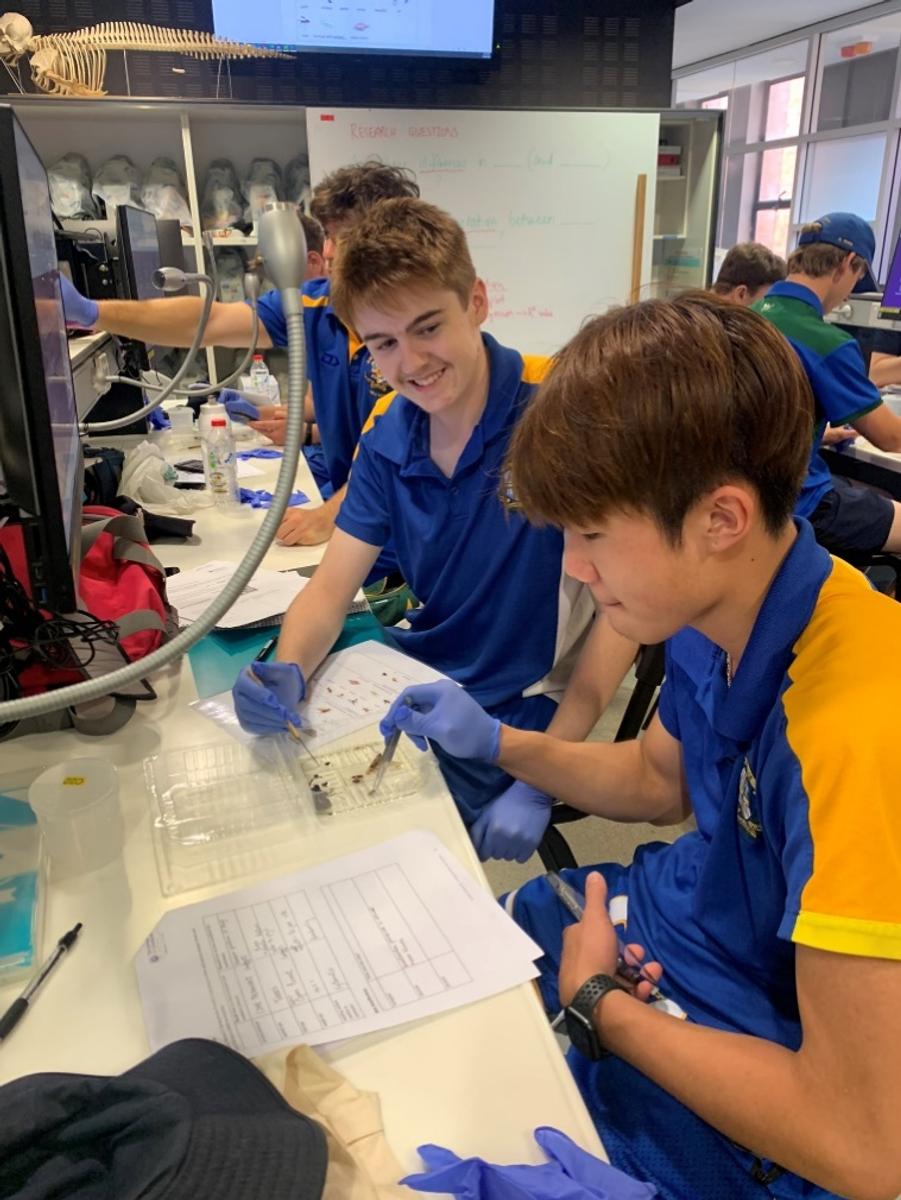
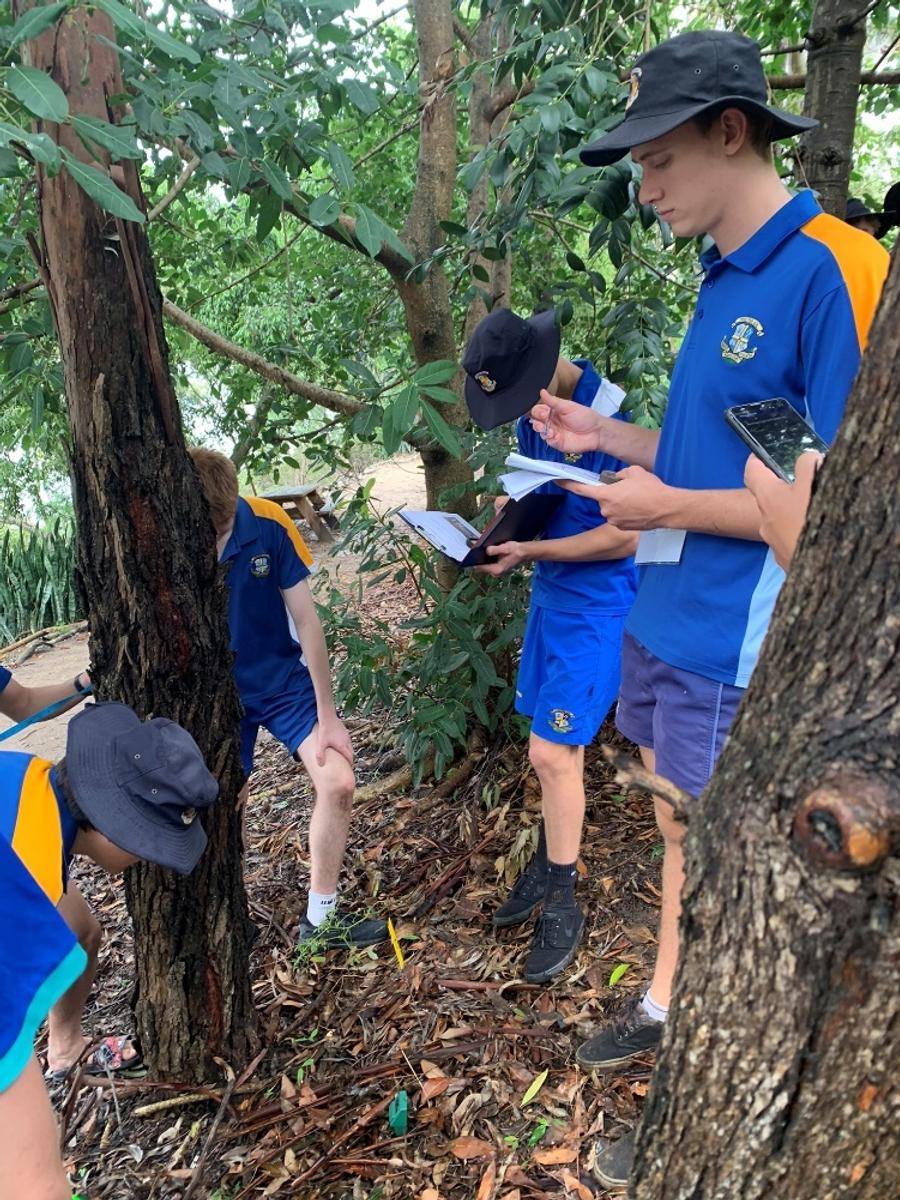
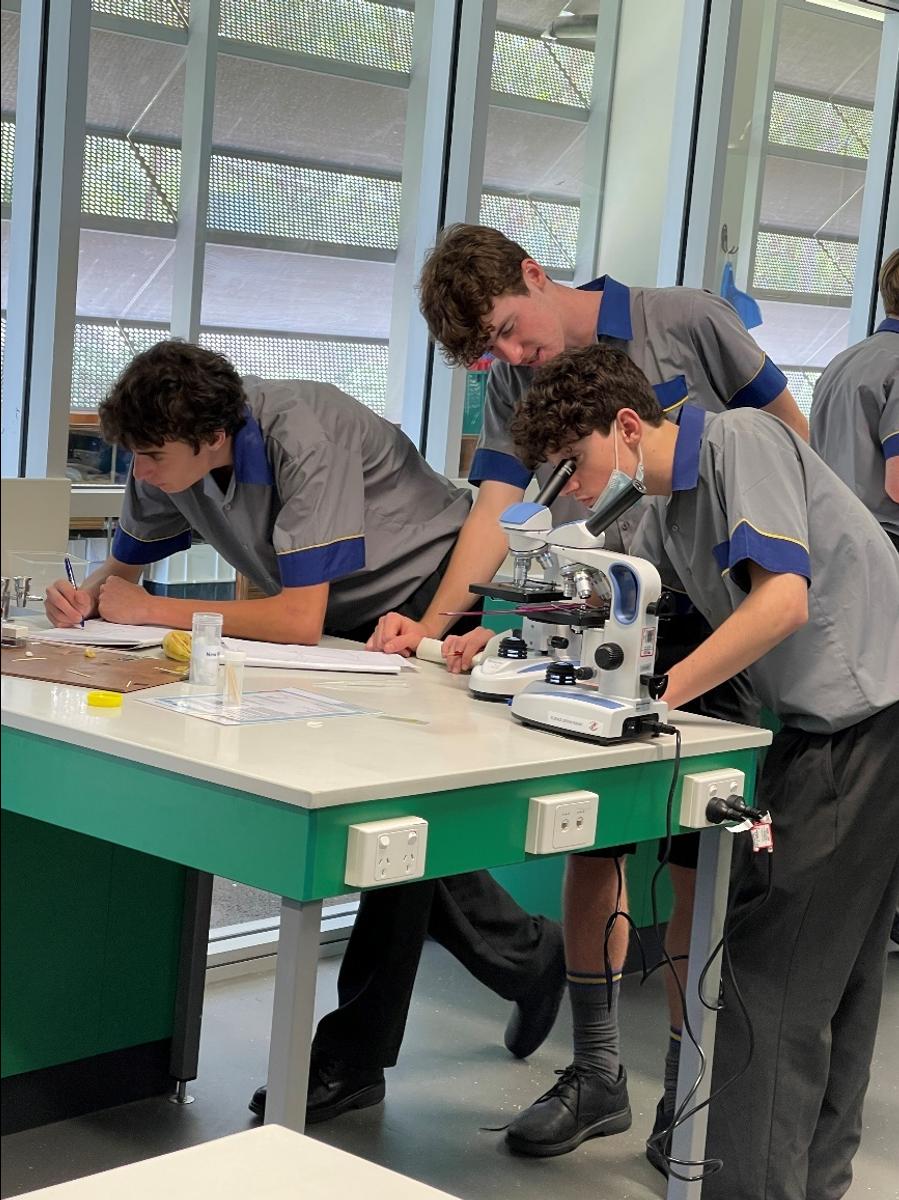



Recently, our Year 12 Biology boys ventured to the University of Queensland (UQ) in preparation for their Internal Assessment 2: Student Experiment. The day involved data collection of both abiotic (non-living) and biotic (living) data in open forest, semi-open forest and closed forest. Some of the data collected included:
This data was used to form students’ research questions and will be the basis for their report. It will be processed and used in a regression analysis or to complete t-tests to look at statistical significance.
As well as a great day of Biology data collection and analysis, the boys also experienced university life with a highlight being lunch in the refectory. A question and answer session with current students also provided insight into what some of the boys may be looking forward to in the future.
Our Year 11 Biology students have been learning about cells and how the human body generates energy from the food we eat. This has been heavily based on practical work, with investigations into diffusion across cell membranes, osmosis, preparing wet mount slides for microscopy, and the effect of temperature on cellular respiration. The students are now preparing for their first piece of formative assessment; the Student Experiment, which is based on factors that affect the reaction rates of enzymes.
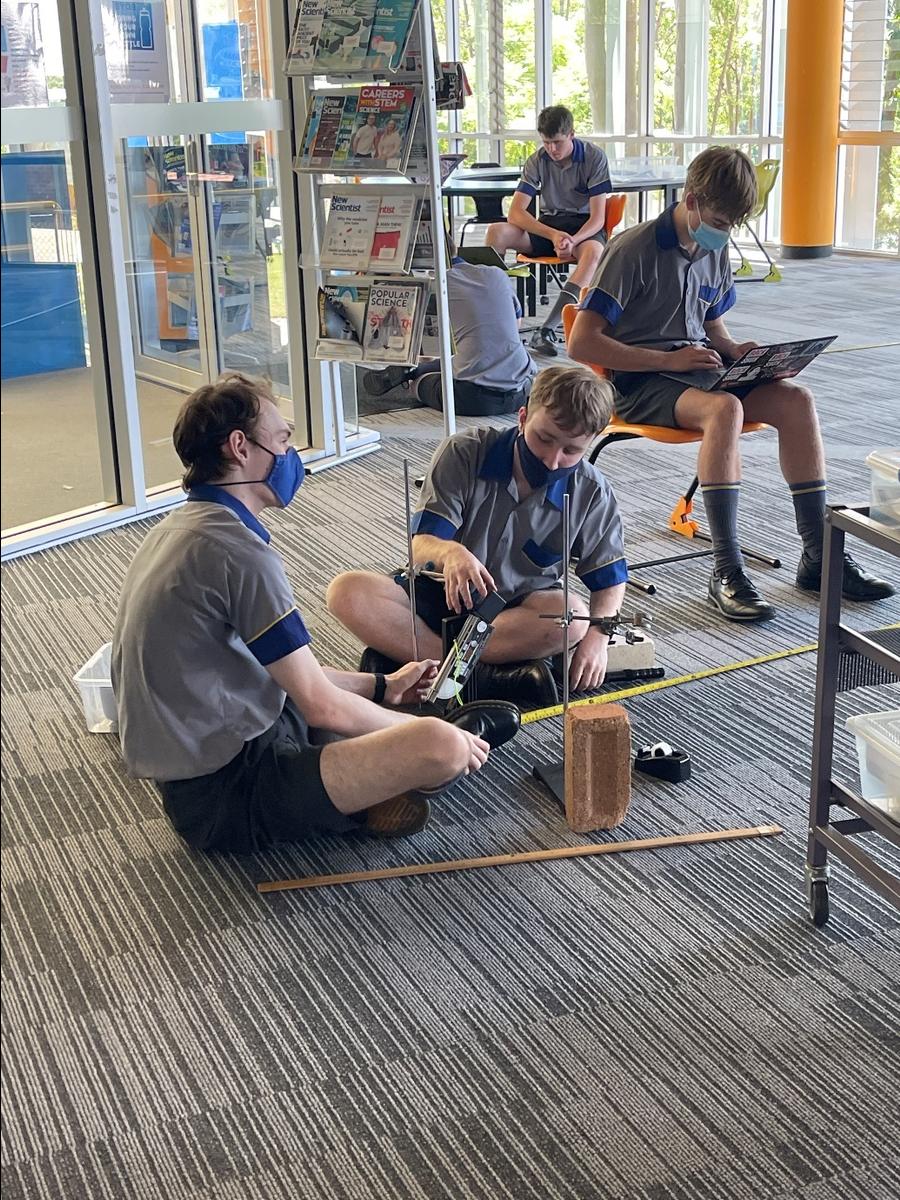
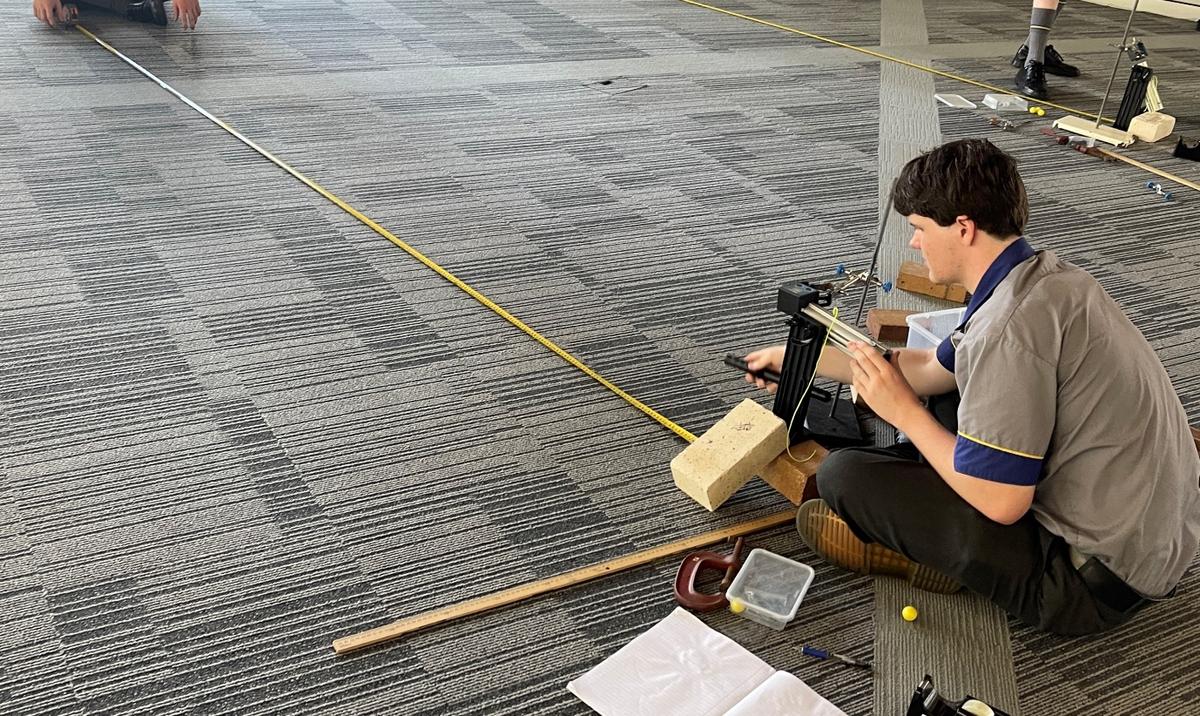


The Year 12 Physics students have completed their studies on projectile motion and are now looking at the factors that affect the horizontal range of projectiles. The students have been launching projectiles in the Science foyer over several lessons, changing specific variables and measuring the range and flight time using video capture and photogates. This will be assessed in their Internal Assessment 2, which is due in Week 8.
In Year 11, students have been looking at Atoms, Nuclear Reactions and Radiation. There has been some great discussion around fusion and fission reactors and evaluating their use in society today. Students are taking this a step further with their Research Investigation, where they are looking at the viability of nuclear power and the importance of nuclear reactors in the world of medicine. Students have been generating their research questions based on two claims given to them, and aim to provide an answer to their questions with links to relevant secondary sources.
A big thank you must go to the wonderful staff in the resource centre who have provided the students with lessons on how to find valid and reliable data, a skill that the students will need throughout the rest of their schooling.
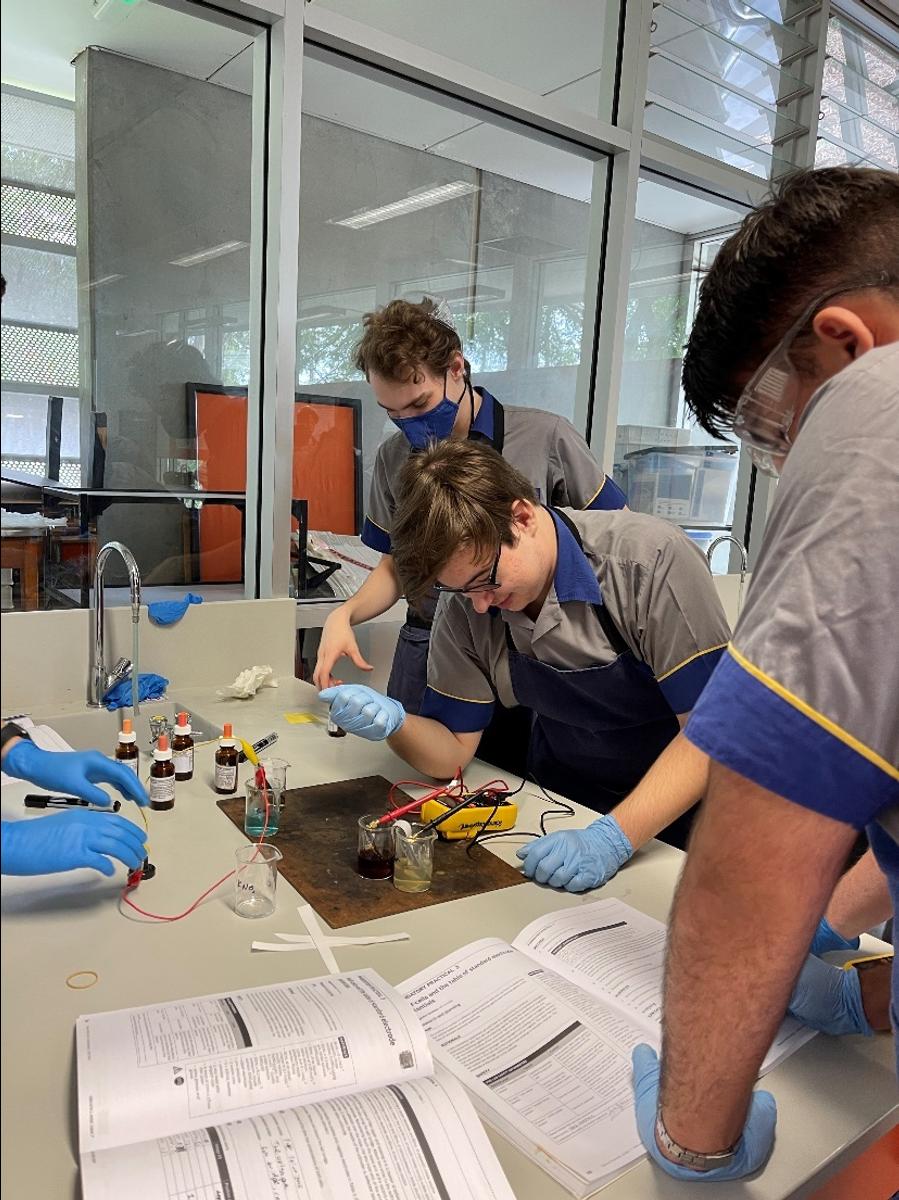
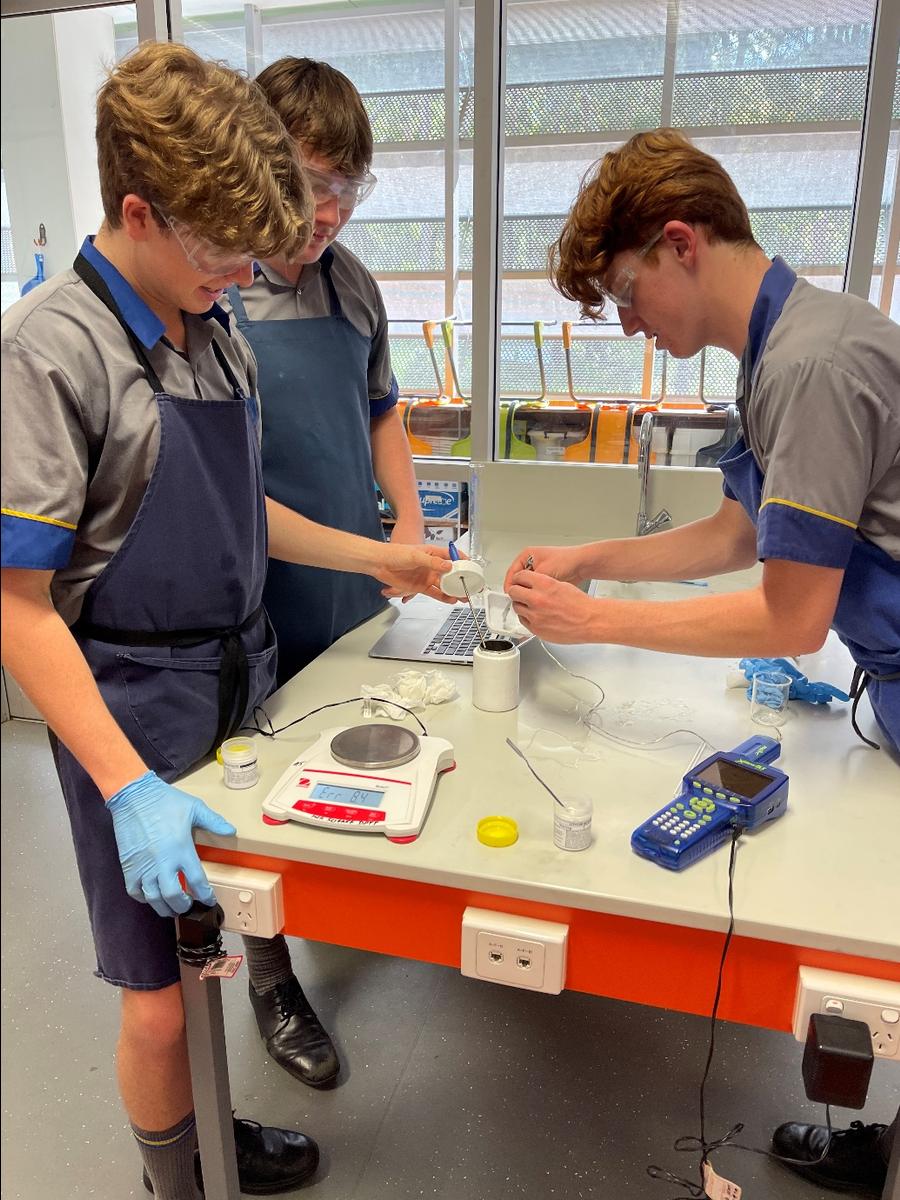


Year 12 Chemistry have also been working through their Student Experiment, this assessment revolving around electrolytic and galvanic cells. Students have been testing the effect of electric current and electrolyte concentration on copper plating. These tests have yielded some excellent results and it is a great indication of how redox reactions are used in real-world applications.
The Year 11 Chemistry students have been busy building molecules and studying the structure of atoms. This topic of Unit 1 provides an important foundation for future studies in Chemistry and also helps students explain the interactions between compounds they see in everyday life. From this foundation, students are now beginning to look at heating processes in atoms, and are working towards their first piece of assessment, a Student Experiment based on calorimetry.
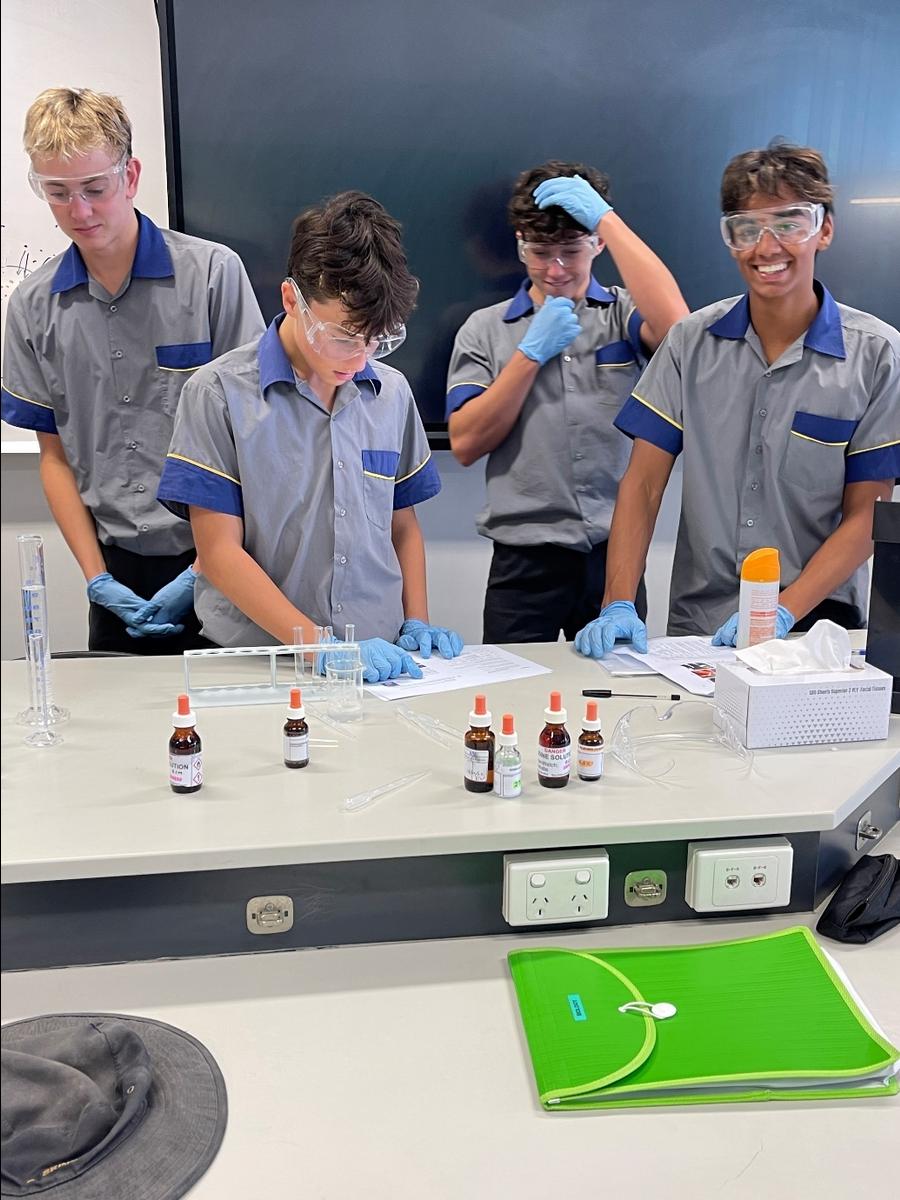
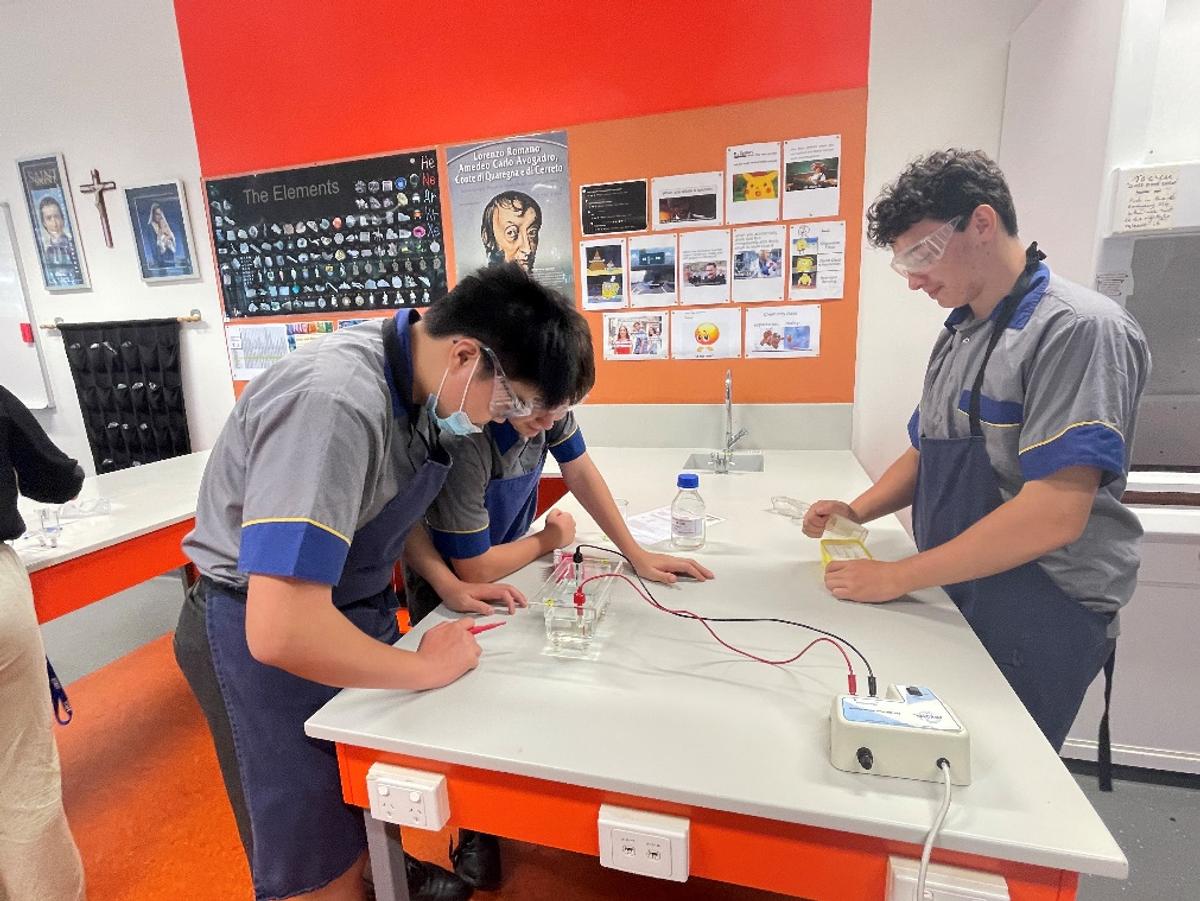


The move to year-long Science electives in Year 10 has been a successful one. Teachers are preparing students with the foundational skills that are needed for success in the senior sciences. Our students in Chemistry, Physics and Biology have been working through the introductory concepts to these subjects and there has been a large focus across these subjects on the skills of data analysis and interpretation; two key skills needed in the new senior syllabus. With their first piece of assessment coming up in the exam block, these students will be provided with valuable feedback on the effectiveness of their study skills and this will be used as a means of tailoring a study plan for each student moving forward.
Our Year 10 General Science students have been thoroughly enjoying the unit on Forensic Science. They have been carrying out DNA profiling, fingerprinting, blood typing among other important aspects of forensic science. This culminates in the assessment during the exam block where the students have to investigate a “murder” in the laboratory! This practical examination tests the student’s ability to make judgements based on evidence, extract information from crime scene reports and use this evidence to support their conclusions.
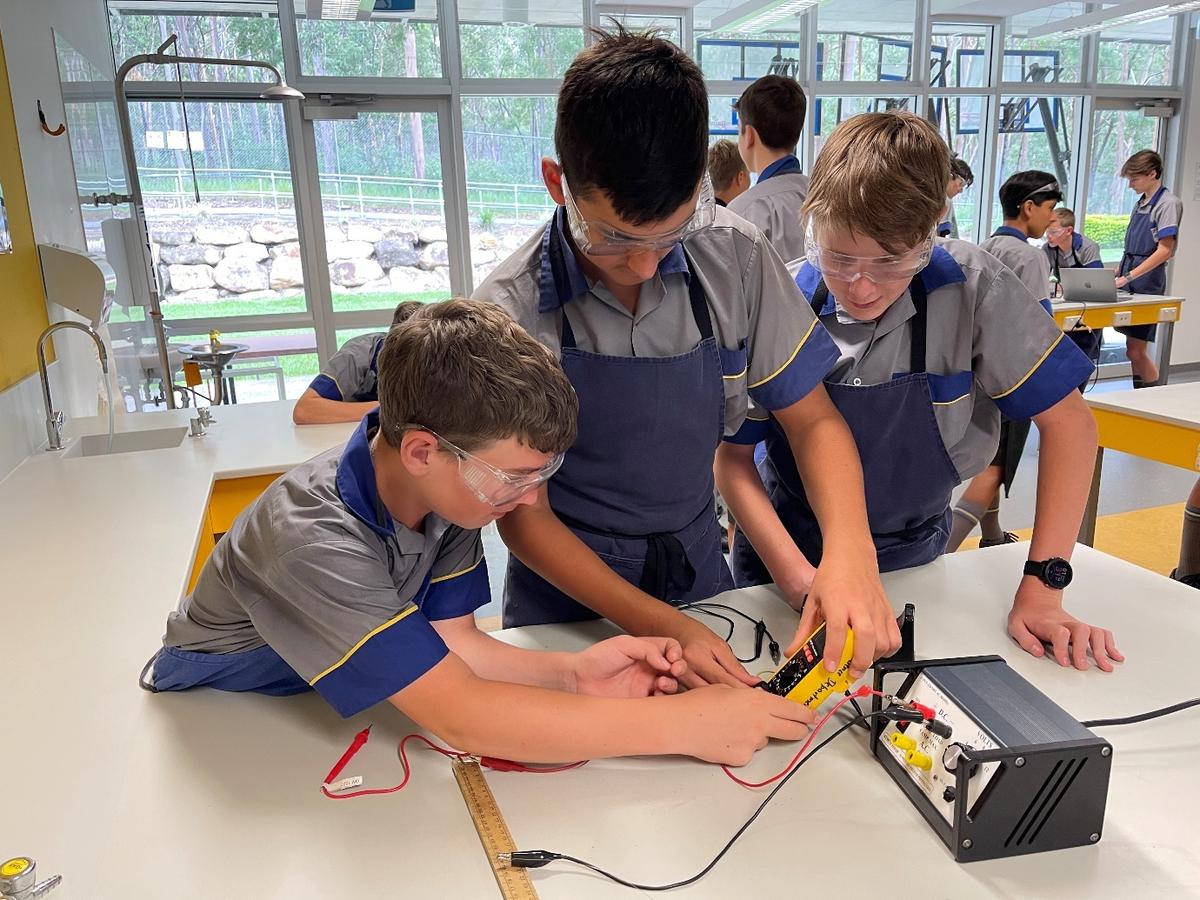

Our Year 9 students have been working on topics based on the fields of Chemistry or Physics. The Chemistry students are looking at atoms, the fundamental building blocks of matter. Over the last week, the students have been studying the different types of radiation and looking at how we use radiation in life outside the classroom. During this unit the students do one of their favourite experiments; M and Minium – which models the half-life of atoms through the decay of “radioactive” M and M’s.
The Physics students have been studying energy and waves. There has been a particular focus on electrical and sound energy, allowing the students to get plenty of practice building circuits and modelling the compression and rarefaction of air particles. Year 9 Physics students have recently completed the drafting process for their Student Experiment, which looked at factors that affect the resistance of wires; an important topic when it comes to electrical safety.
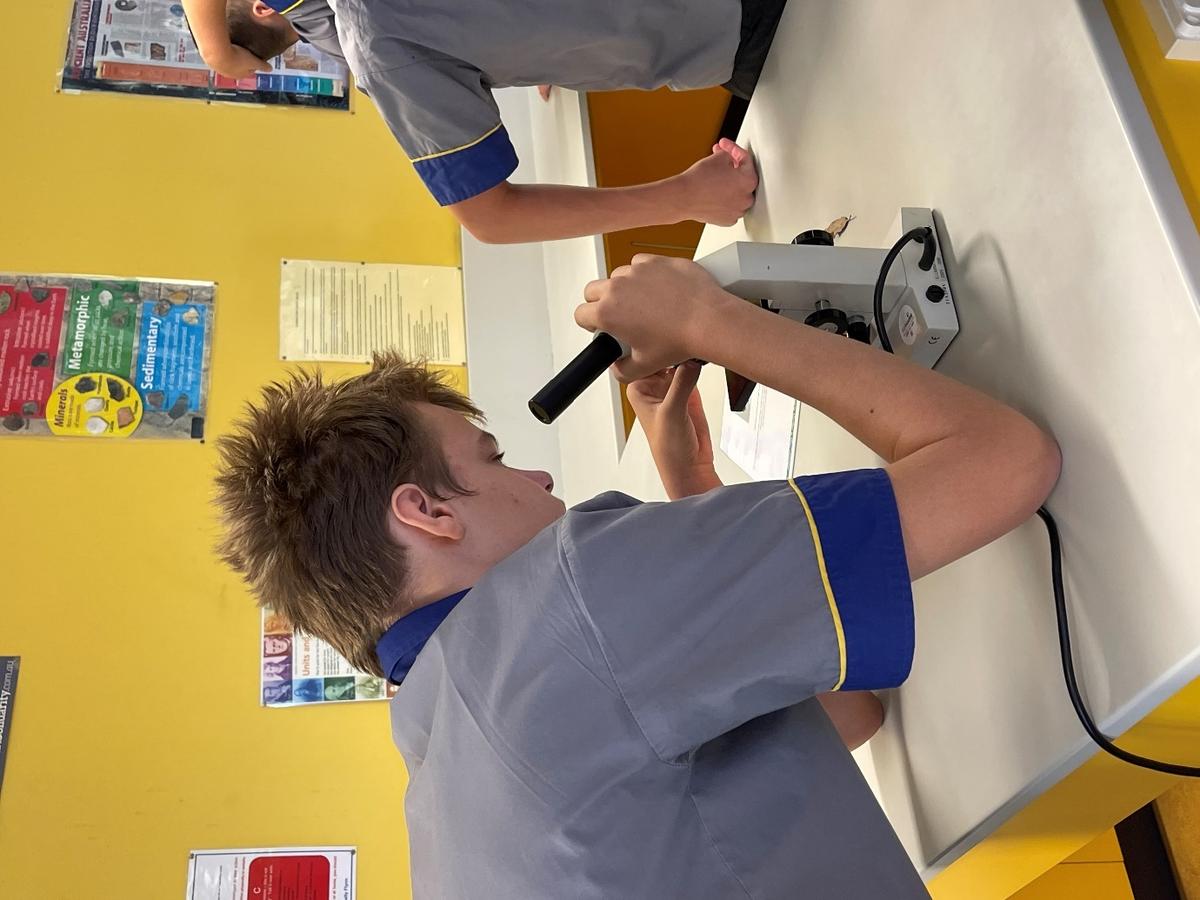
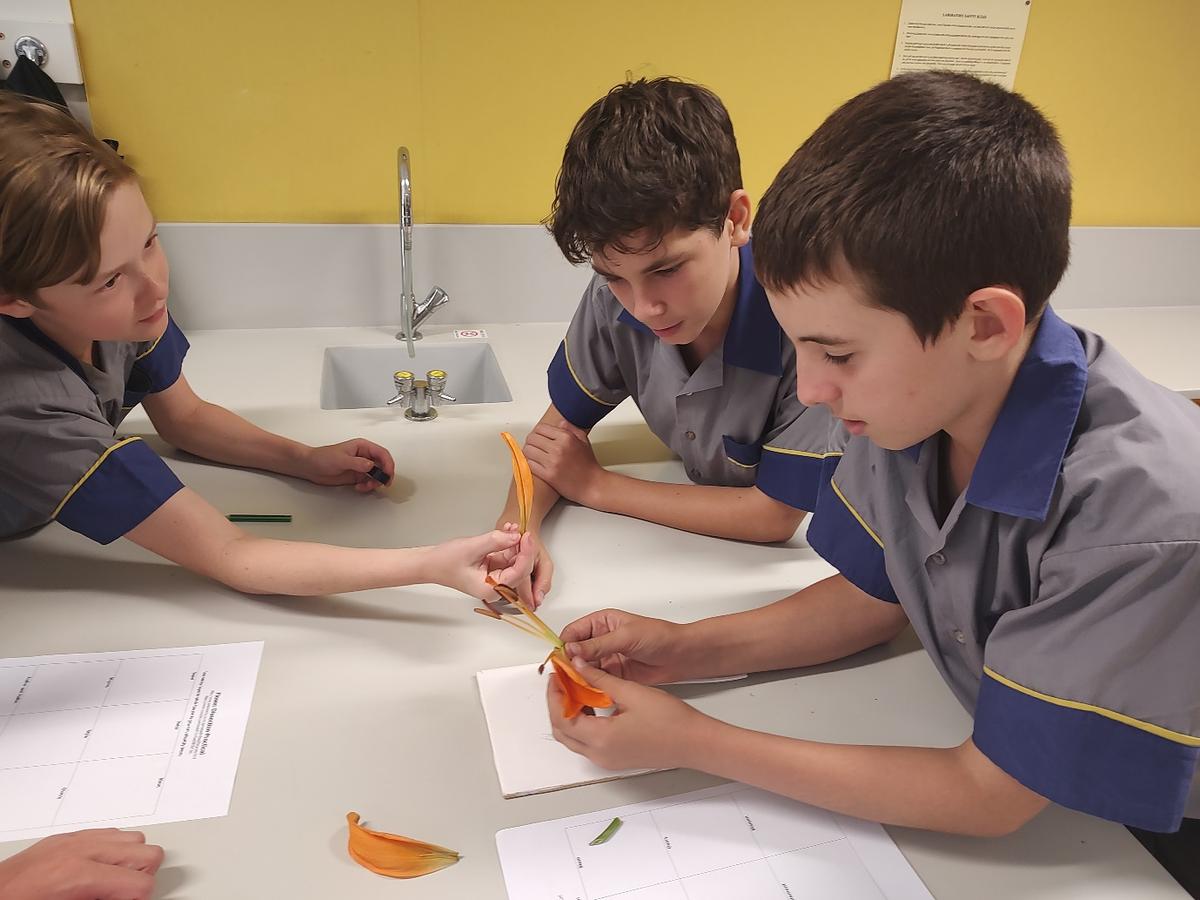


This has been the first foray into the world of microbiology for our Year 8 students. This term has focussed on cells, microorganisms and reproduction. It has been a great opportunity to become familiar with microscopes and gain a greater appreciation of the complexity of organisms we might not see, or take for granted. The students were amazed to see the number of organisms that can be found in a small drop of creek water and the variety of species. Students then looked at the differences between plant and animal cells and how these affect the structure and function of organisms in these kingdoms.
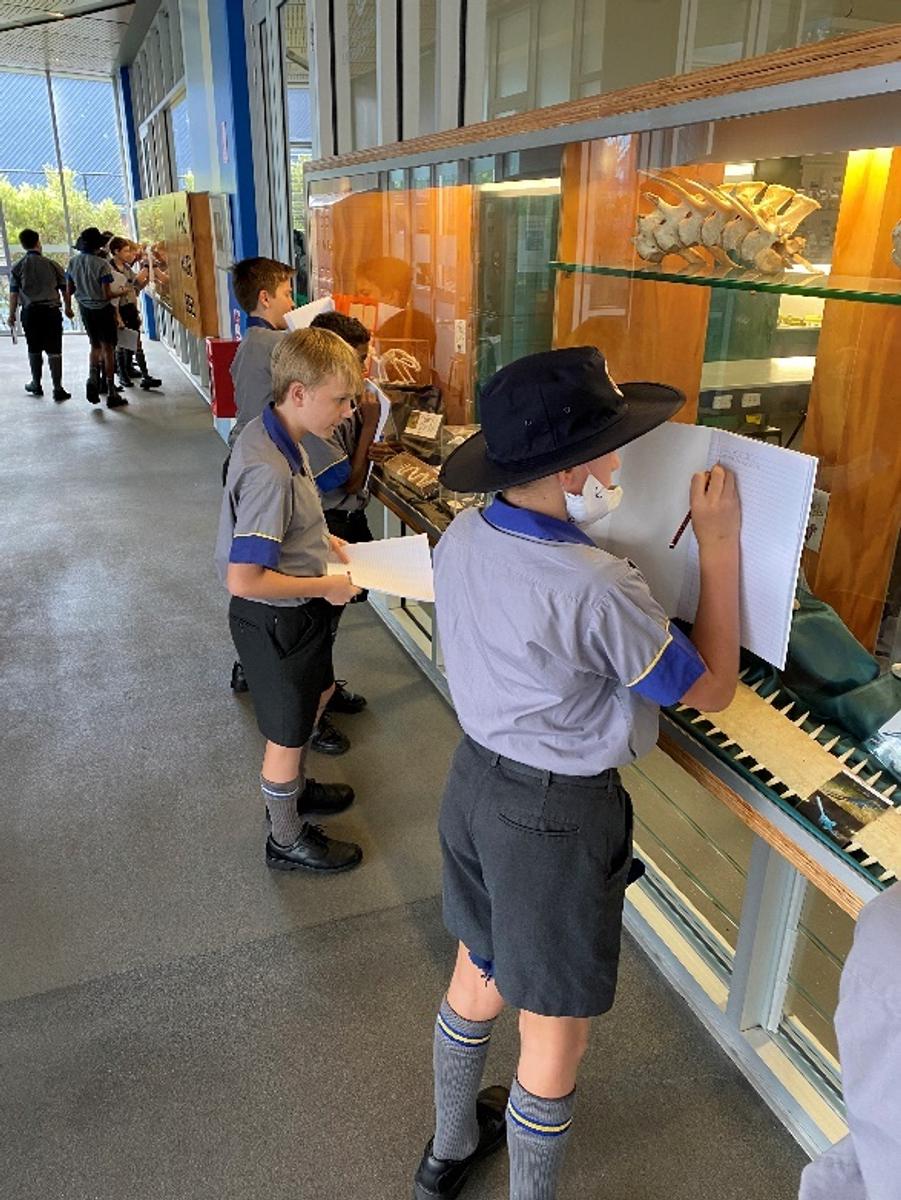
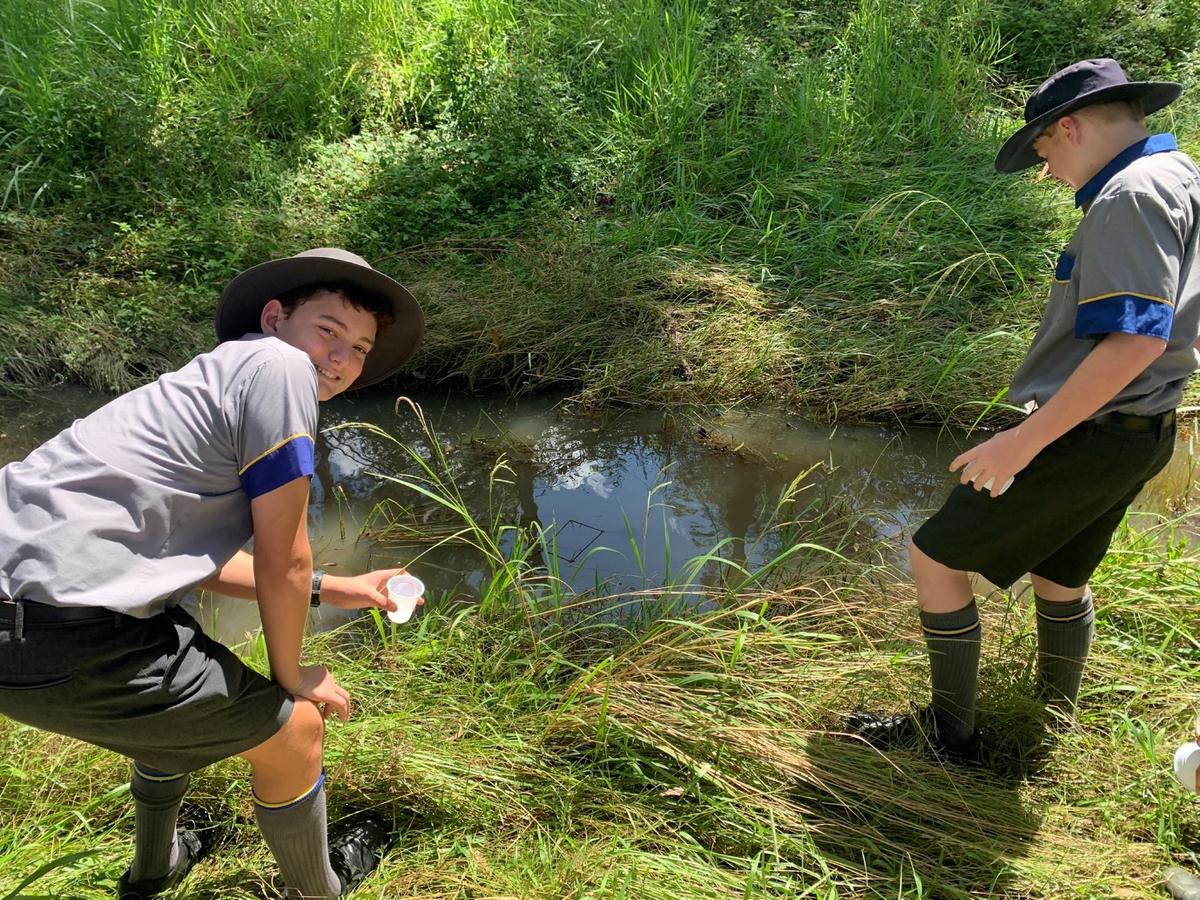
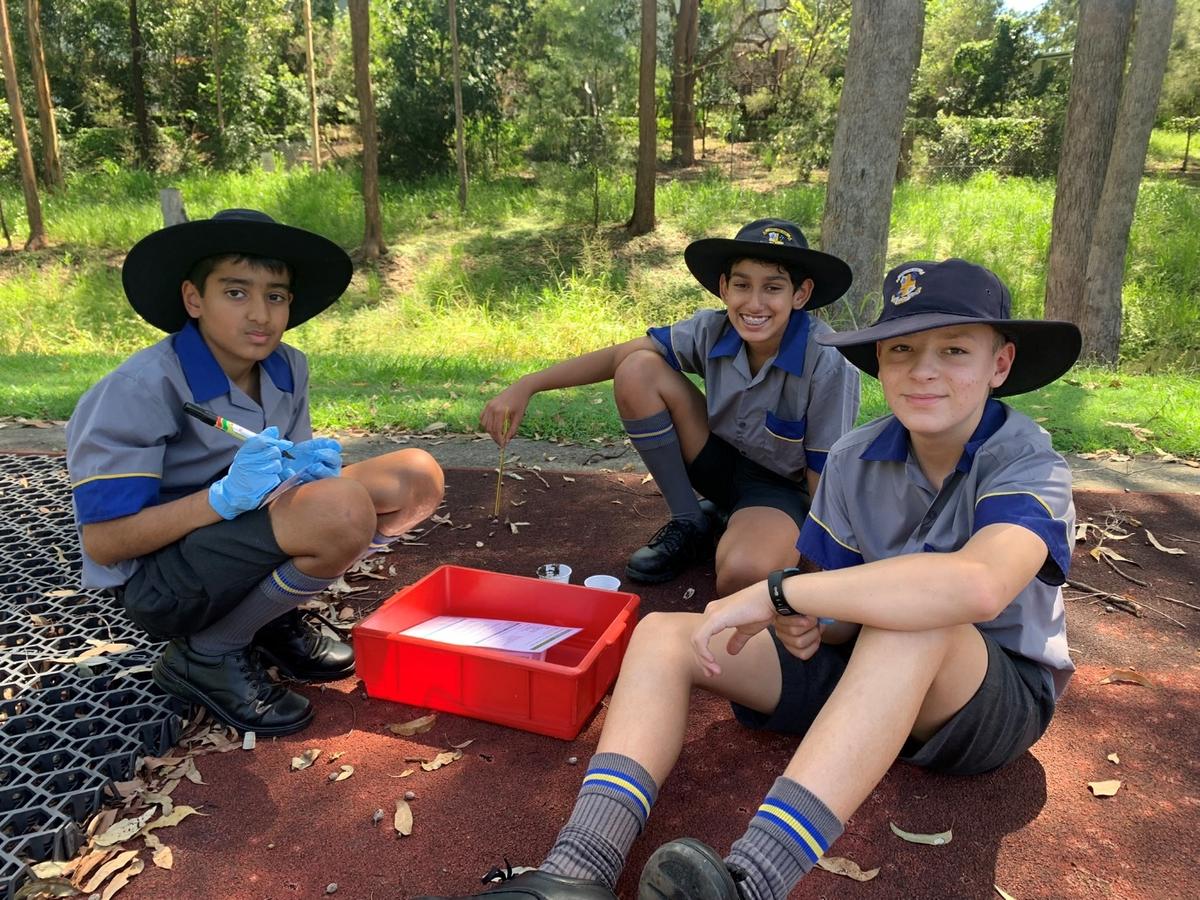



The Year 7 students have hit the ground running with their education in Science and have been looking at the world of taxonomy, as part of a unit on classification. We recently borrowed a large assortment of samples from the Queensland Museum, which students have been classifying using dichotomous keys and observable characteristics. While not all classes were able to go down to the creek due to the recent flooding, all of the students were still able to get hands-on in their testing of biotic and abiotic factors around the school. Students are now looking at the interaction between organisms in ecosystems, showing the flow of energy through food chains and food webs. They will be completing their first piece of Science assessment, an end of term exam during the exam block in Week 9.
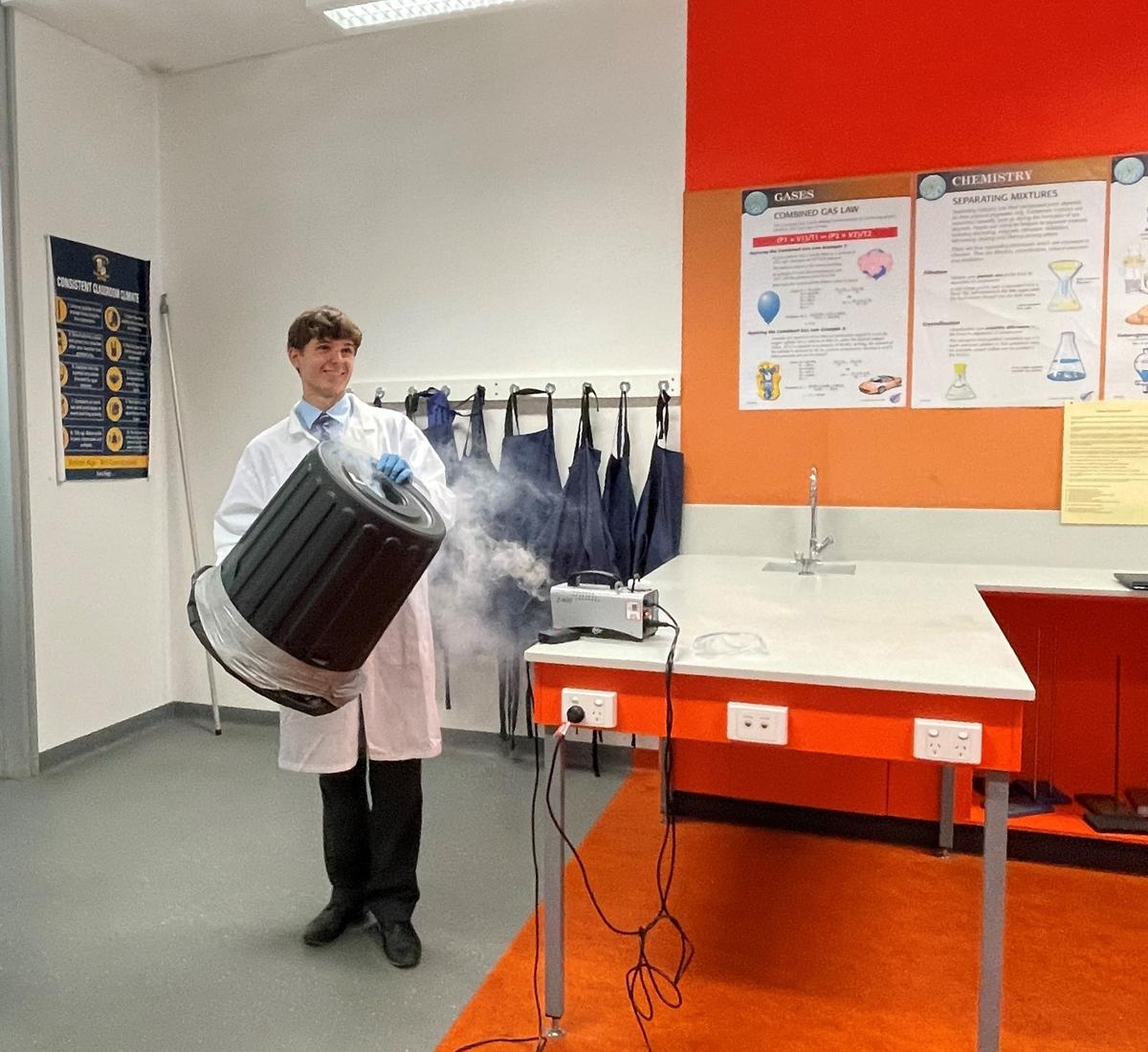
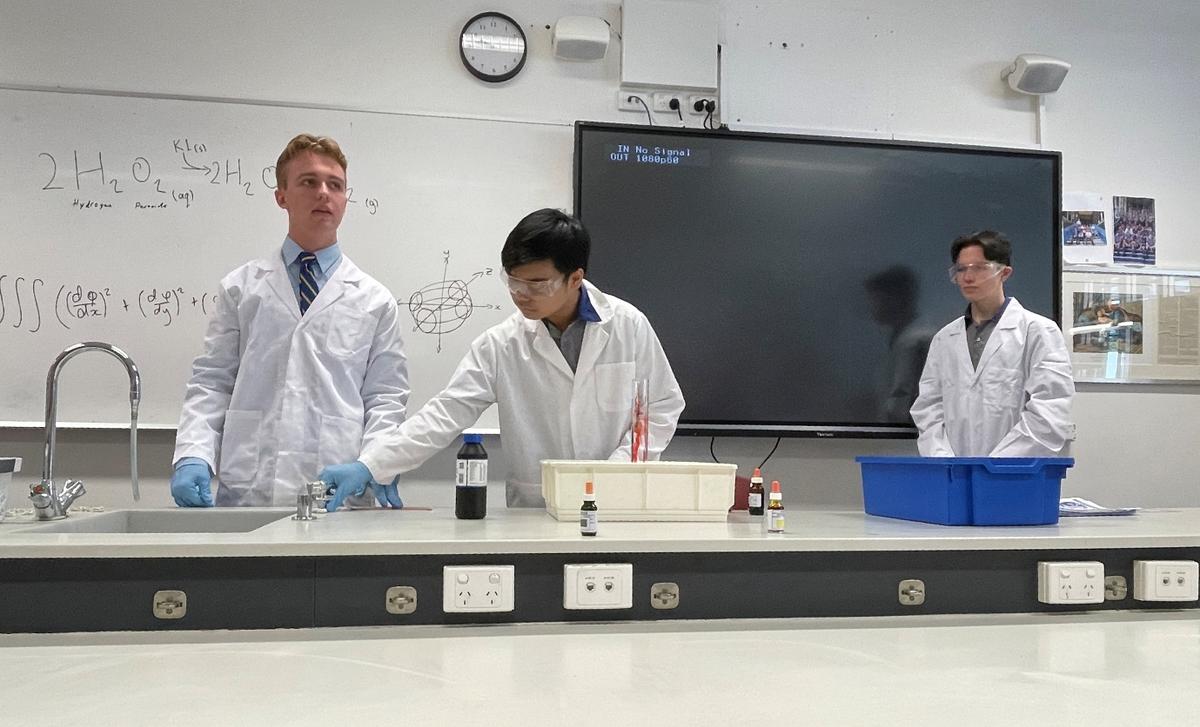


For our most passionate Science students, there are multiple opportunities to get involved outside of the classroom. Our Science club is back up and running, boys have already looked at the paradoxes in Physics including ‘Schrödinger’s cat’. They also carried out the famous ‘double-slit’ experiment, looking at the wave-particle duality of light.
Last year’s UQ Science ambassadors ‘passed the torch’ to our seven new UQ Science ambassadors during the recent Headmasters Tour. This year's ambassadors are Cruz Day, Jenan Ancheta, Joseph Lewis, Isaac Lynn, Michael Hayter, Roman Ah Loy and Ben Kumaru. These students are responsible for the demonstrations during these tours, showing prospective students experiments including ‘elephants toothpaste’, Van de Graaf generators and the vortex cannon. These students gave excellent explanations of these concepts and we are looking forward to their contribution to the Science program this year.
I would also like to wish good luck to our UQ Science and Engineering Team who will be travelling to the University of Queensland on Thursday 17 March to defend our title. This is always an enjoyable experience for the students and a great foray into problem-solving and engineering.
Finally, this year we will be participating in the Chemistry, Physics and Biology Olympiads. These competitions will be open to Year 11 students and there is more information in the school notices, or do not hesitate to contact Head of Science, Mr Andrew Fogarty at fogartya@marash.qld.edu.au.